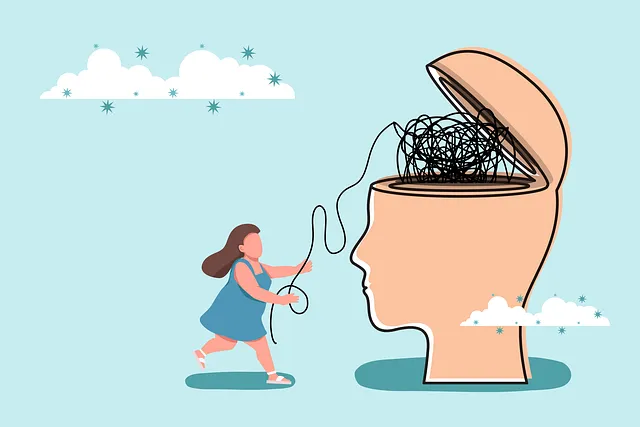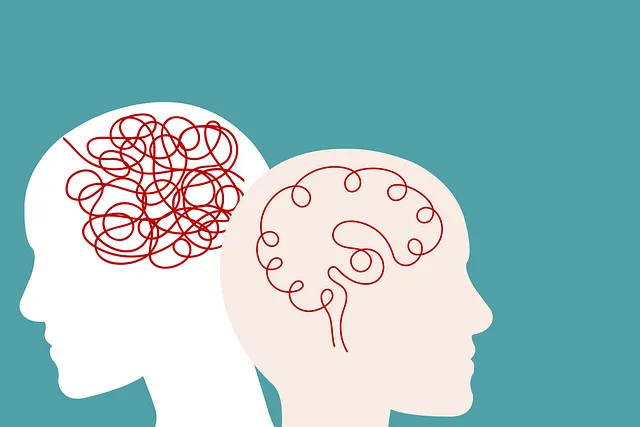The Lone Tree Kaiser Permanente mental health center addresses growing demand for mental wellness services, emphasizing the importance of personalized coaching programs. These initiatives, highlighted in the center's reviews, offer evidence-based strategies for stress management, trauma support, and depression prevention. Through structured curricula, cultural sensitivity, and continuous improvement based on patient feedback, these programs enhance resilience, productivity, and quality of life.
Mental wellness coaching programs are gaining prominence as essential tools for promoting holistic well-being. This article explores the critical need for such initiatives, with a focus on their development and implementation at the Lone Tree Kaiser Permanente Mental Health Center. We delve into designing effective coaching models, crafting relevant curricula, and assessing progress through evaluation methods. By examining real-world examples, this guide offers valuable insights for healthcare professionals aiming to enhance mental health support within their institutions, as evidenced by positive Lone Tree Kaiser Permanente mental health center reviews.
- Understanding the Need for Mental Wellness Coaching Programs
- Designing Effective Coaching Models and Curricula
- Implementation, Evaluation, and Continuous Improvement at Lone Tree Kaiser Permanente Mental Health Center
Understanding the Need for Mental Wellness Coaching Programs

In today’s fast-paced world, mental wellness is an increasingly important aspect of overall health, and the need for accessible and personalized coaching programs has never been more evident. This is particularly relevant in areas like Lone Tree, where the Kaiser Permanente mental health center reviews highlight the growing demand for effective support services. Many individuals struggle with stress, anxiety, and other mental health challenges, often without seeking help due to stigma or a lack of understanding about available resources. Mental wellness coaching programs step in to fill this gap by offering tailored strategies and tools to enhance resilience and coping mechanisms.
Trauma Support Services and Stress Management Workshops Organization are key components of these programs, empowering individuals to navigate their mental health journeys effectively. Moreover, with the additional pressure on mental health professionals due to Risk Management Planning, well-structured coaching initiatives ensure that support is delivered safely and ethically. By integrating evidence-based practices and fostering a supportive environment, these programs aim to promote mental wellness, increase productivity, and overall improve the quality of life for those seeking guidance.
Designing Effective Coaching Models and Curricula

Developing effective mental wellness coaching programs requires thoughtful curriculum design that aligns with best practices and current research in mental health. Coaches should be equipped with a robust toolkit, including evidence-based techniques for stress management, communication skills, and crisis intervention. The curriculum should also integrate self-care strategies to prevent burnout among professionals, as highlighted in reviews from the Lone Tree Kaiser Permanente mental health center.
A structured approach, such as incorporating a risk assessment for mental health professionals, can help identify vulnerabilities and tailor interventions accordingly. By focusing on Mental Health Awareness and Depression Prevention, coaches can contribute significantly to fostering resilient individuals capable of navigating life’s challenges effectively. This holistic approach ensures that both the coach and the client benefit from a well-rounded program designed to enhance overall mental wellness.
Implementation, Evaluation, and Continuous Improvement at Lone Tree Kaiser Permanente Mental Health Center

At Lone Tree Kaiser Permanente Mental Health Center, implementation of wellness coaching programs is a multifaceted process that incorporates ongoing evaluation and continuous improvement. The center leverages structured frameworks to tailor mental health services, ensuring they align with individual needs and preferences. Regular reviews of program effectiveness involve gathering patient feedback through surveys and one-on-one discussions, providing insights into areas for enhancement.
Cultural sensitivity in mental healthcare practice is a cornerstone of their approach, with coaches trained to recognize and respect diverse cultural beliefs and practices. This not only improves patient engagement but also facilitates better anxiety relief and emotional well-being promotion techniques. Through regular workshops and staff training sessions, the center cultivates an environment where professionals are equipped to handle various challenges, fostering a supportive atmosphere that enhances overall mental wellness outcomes.
Mental wellness coaching programs are gaining recognition as valuable tools for improving individual well-being. As exemplified by the successful implementation at the Lone Tree Kaiser Permanente Mental Health Center, these programs can significantly enhance access to care and foster positive outcomes. By designing curricula that cater to diverse needs and utilizing evaluation methods that promote continuous improvement, mental health centers like Lone Tree KP can revolutionize support systems. Encouraging more such initiatives, especially in light of favorable reviews from the community, will contribute to a holistic approach to mental wellness, ensuring better lives for those seeking guidance and support.






